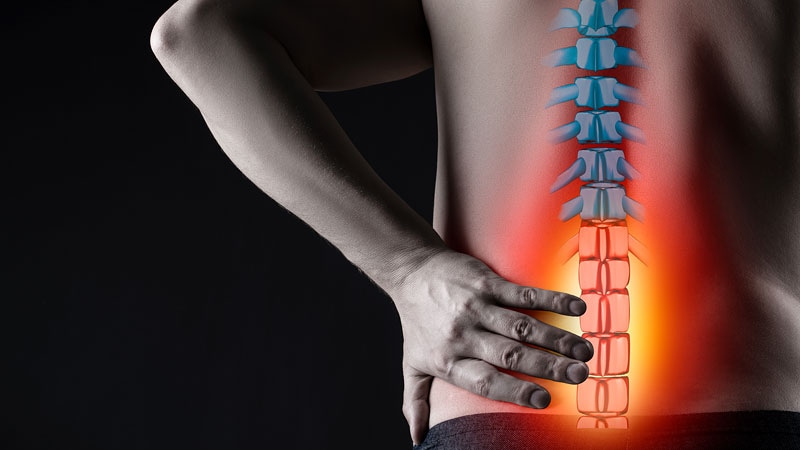Psychological therapy that changes an individual’s beliefs about pain can provide lasting relief for chronic back pain (CBP), long-term follow-up results of a randomized controlled trial showed.
More than half of those who received the brain-focused pain reprocessing therapy (PRT) reported being nearly or completely pain-free 5 years later, outperforming placebo and usual care.
While improved coping with chronic pain is the goal of some psychological treatments, “our findings indicate that PRT can provide durable recovery from CBP for some patients,” noted the authors, led by Yoni Ashar, PhD, Department of Psychiatry, Weill Cornell Medical College, New York City.
The study was published online on July 30 in JAMA Psychiatry.
Retraining the Brain
CBP is a leading cause of disability, and durable, nonpharmacologic treatments are scarce.
PRT educates patients about the role of the brain in generating chronic pain, helps them reappraise their pain as they engage in movements that they had been afraid to undertake, and helps them address emotions that may exacerbate pain.
The original study included 151 adults (54% women; mean age, 41 years) who had had primary CBP of low-to-moderate severity (mean pain intensity, 4 of 10) for an average of 10 years.
In all, 50 participants were randomly allocated to PRT (one telehealth session with a physician and eight PRT sessions over 4 weeks), 51 to placebo (subcutaneous saline injection in the back), and 50 to continue their routine, usual ongoing care.
As previously reported by Medscape Medical News, PRT led to large reductions in CBP severity, with benefits generally maintained through 1-year follow-up.
A total of 113 (75%) participants completed the 5-year follow-up, including 38 in the PRT group, 39 in the placebo group, and 36 in the usual care group.
At 5 years, PRT participants reported significantly lower pain intensity than placebo and usual care participants; the adjusted mean pain intensity was 1.93 in the PRT group vs 3.19 in the placebo and 2.60 in the usual care groups; PRT was superior to both comparators (P = .006 vs placebo; P = .04 vs usual care).
In the PRT group, 55% of PRT patients were nearly or completely pain free at 5 years vs 26% in the placebo and 36% in the usual care groups (P = .03).
Beyond pain intensity, PRT yielded significant improvements in pain interference, depression, anger, reduced kinesiophobia, and stronger attribution of pain to mind-brain processes. PRT had no significant differential effects at 5 years on sleep, anxiety, positive effect, catastrophizing, or perceived controllability of pain.
The authors noted that the original sample had low-to-moderate baseline pain severity, and trials in higher-severity populations are needed to evaluate generalizability.
The study had no specific funding. Ashar reported receiving grants from the Association for the Treatment of Neuroplastic Symptoms during the conduct of the study and personal fees from Pain Reprocessing Therapy Center for conducting clinical trainings.
Source link : https://www.medscape.com/viewarticle/brain-retraining-yields-lasting-relief-chronic-back-pain-2025a1000kyo?src=rss
Author :
Publish date : 2025-08-07 07:46:00
Copyright for syndicated content belongs to the linked Source.
